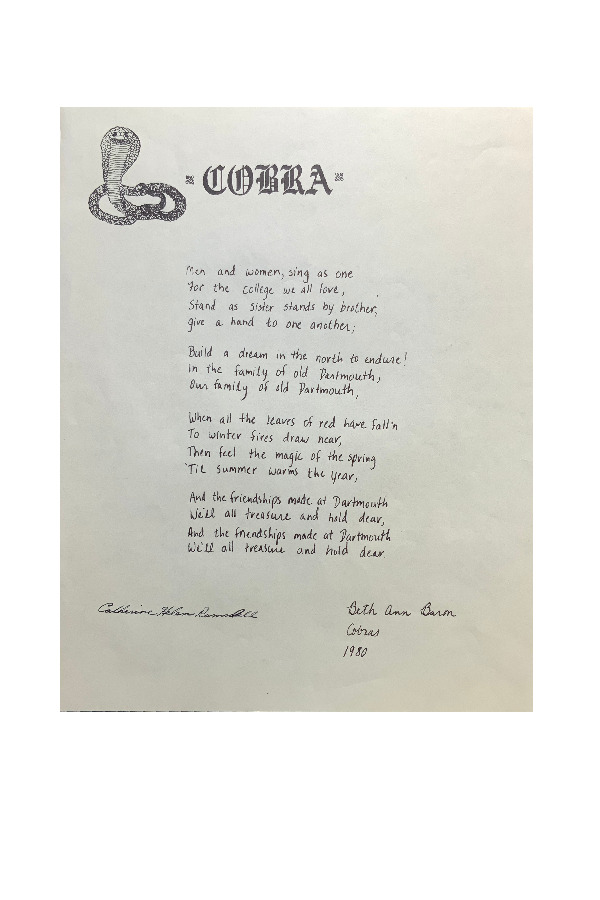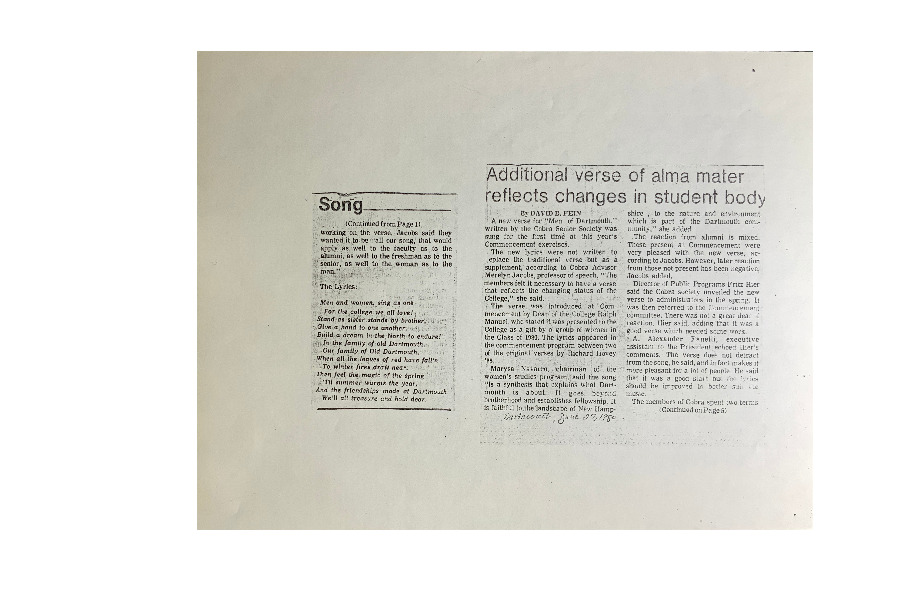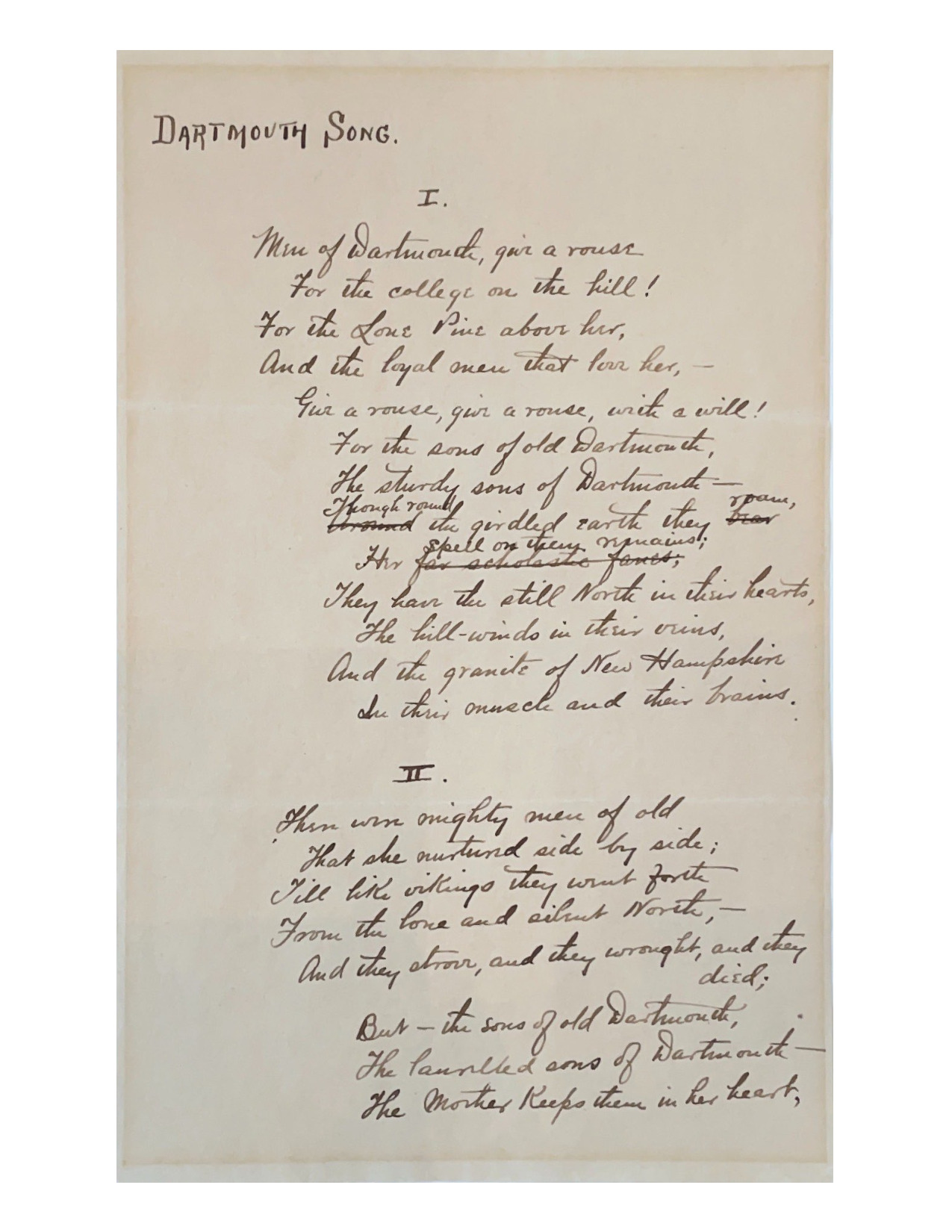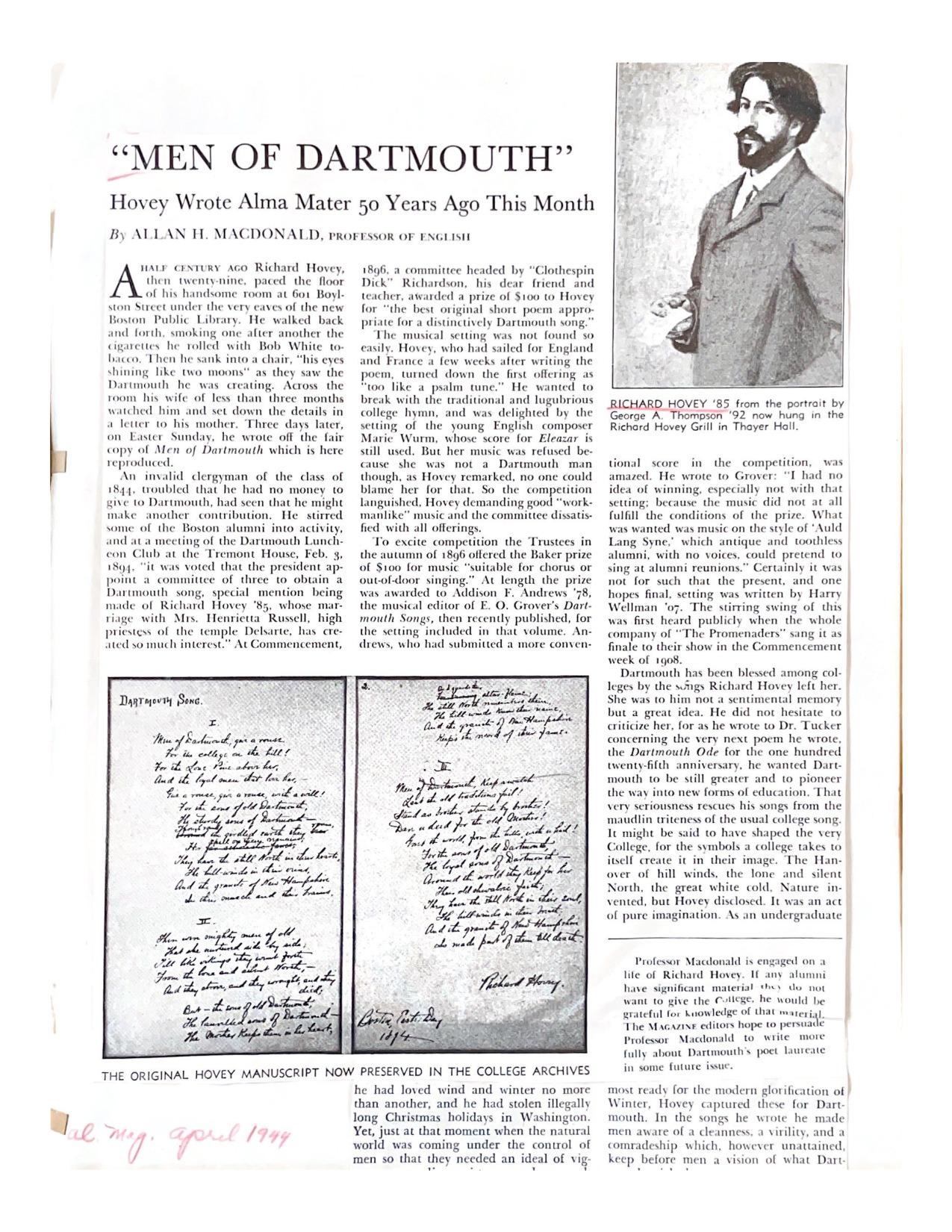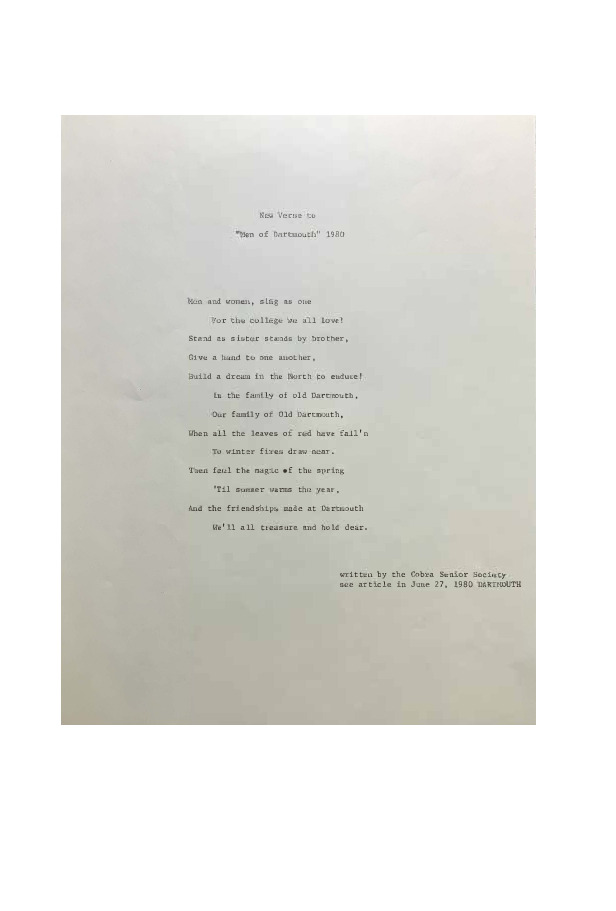Music as a Vehicle for Social Change
During the academic year 2019-2020, Dartmouth celebrated its 250th anniversary. This coming academic year (2022-2023), Dartmouth will celebrate its 50th cohort of incoming female students. Put differently, women have been a part of Dartmouth’s history for less than 1/5th of the institution’s existence.
Interestingly, women have been at the epicenter of some of this school’s most controversial music. When they first introduced themselves on campus in 1972, the official school song was “Men of Dartmouth,” a piece of music that neither reflected nor acknowledged the presence of women. As the institution’s official anthem, “Men of Dartmouth” was performed at convocation and commencement. Thus, women at Dartmouth from 1972 until 1988 had their musical experiences at Dartmouth bookended by the performance of a song that ignored their existence.
The 16-year period of coeducation during which “Men of Dartmouth” was kept around was not met without controversy. John Kemeny, then president of Dartmouth, opened the academic year 1972-1973 with the singing of “Dartmouth Undying” rather than “Men of Dartmouth.”[1] After the administration was met with pushback from the men on campus for this sudden change, the school reverted back to singing “Men of Dartmouth.” However, in 1986, Dartmouth’s Council on Diversity offered the following recommendation to the President:
“Because 'Men of Dartmouth' is an inappropriate school song for a coeducational institution, the College community should explore three possible ways to address the situation: a.) through modification of the present language and/or the creation of wholly new verses to replace the old ones; b.) through the substitution of another traditional Dartmouth song that is not sex-specific; or c.) through the creation of a wholly new song...”
Protesters at the 1986 convocation convinced President David McLaughlin to form a committee focused on the creation of a new school song. On May 28th, 1988, the new lyrics to the Dartmouth anthem were printed in the commencement program; those words are the same ones we hear today.
It is worth noting that in 1980, still eight years before “Men of Dartmouth” would change, Cobra Senior Society submitted an alternative verse to be placed between the two original Hovey verses. Their verse, which very explicitly signaled the idea of coeducation, was performed once before being dropped by the college, presumably due to pushback from the male faction of campus and various powerful alumni.
Thinking about the process of changing the “Alma Mater” is revealing because it marks the first known time a disenfranchised group at Dartmouth (in this case, women) actively and publicly sought to change music to improve their social standing. From this we see that students at Dartmouth implicitly understood the power music had to preserve certain social structures. If Dartmouth’s official song never acknowledged women, every convocation, commencement, or 6pm performance from Baker’s bell tower might subconsciously reinforce to the community that women do not deserve to be here. As a result, women on campus from 1972-1988 worked hard to advocate for their musical inclusion, ultimately bolstering their stature on campus and allowing them to compete socially.
[1] Lathem, Edward, and David Shribman. 1999. Miraculously Builded in Our Hearts: A Dartmouth Reader. University Press of New England.
Additional Sources:
Previous: We're Just Kidding Around! -- Next: Changing Traditions

